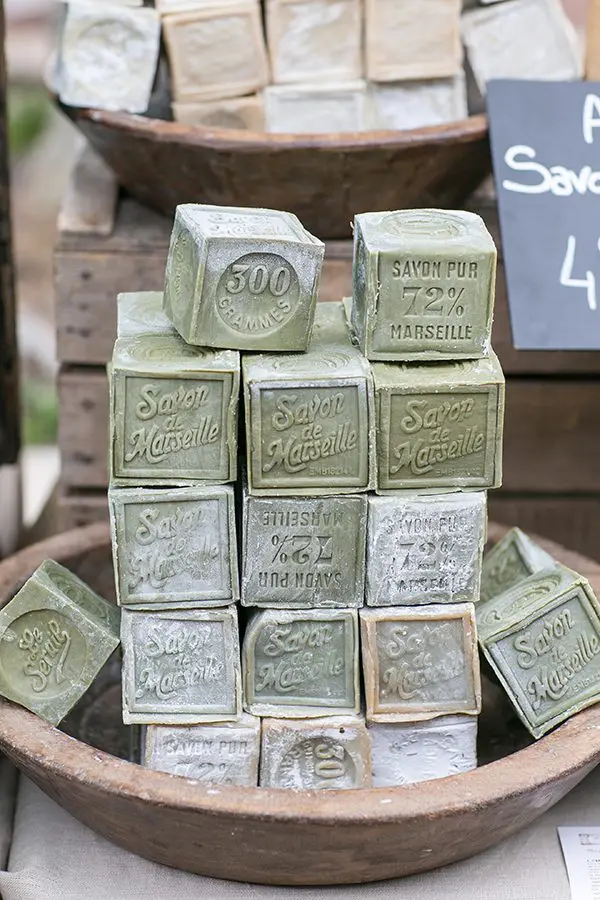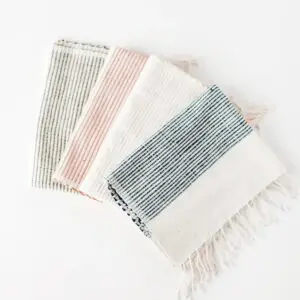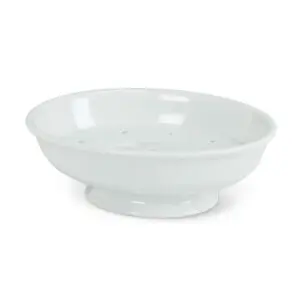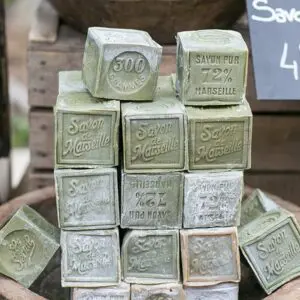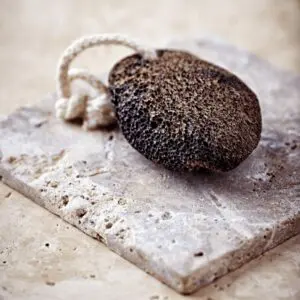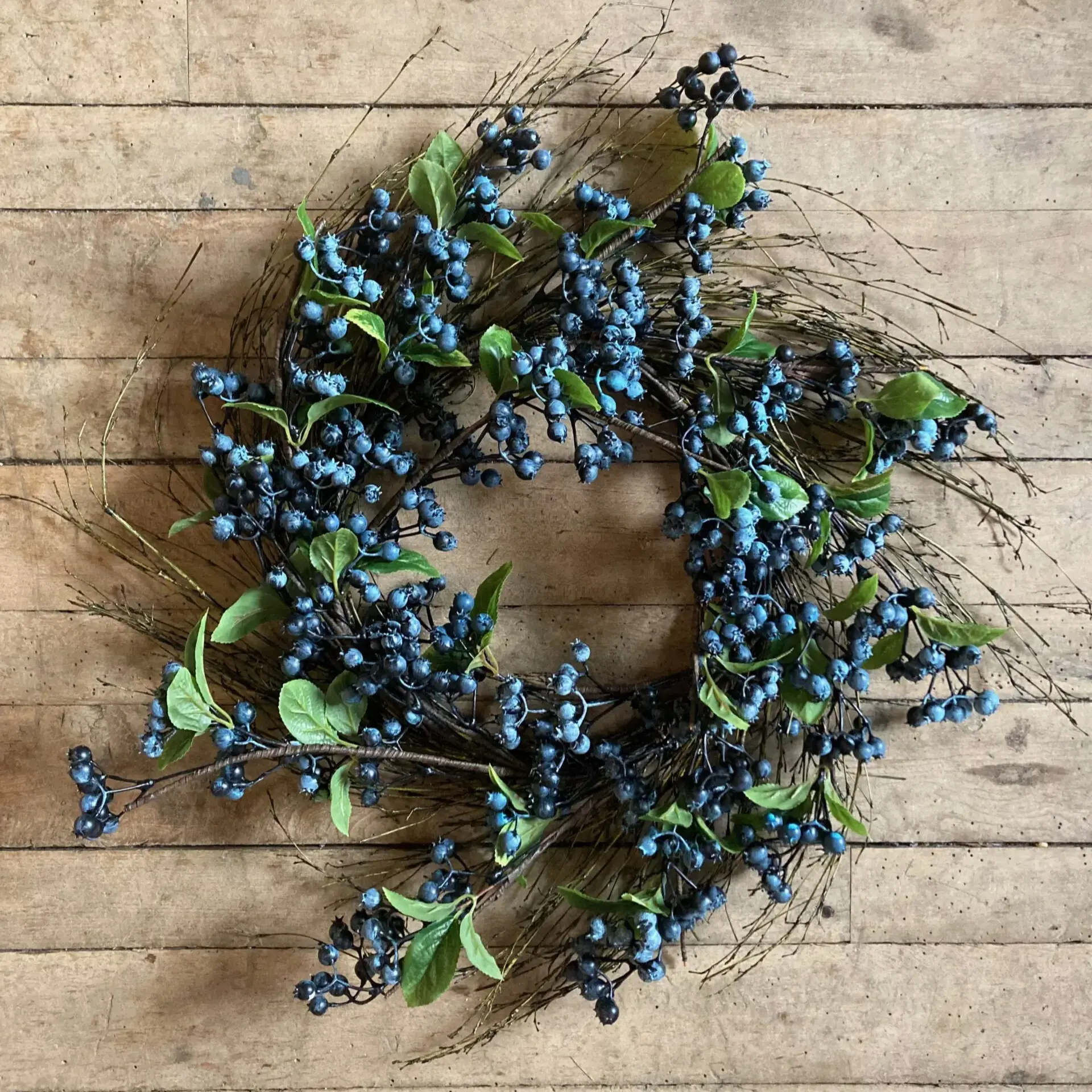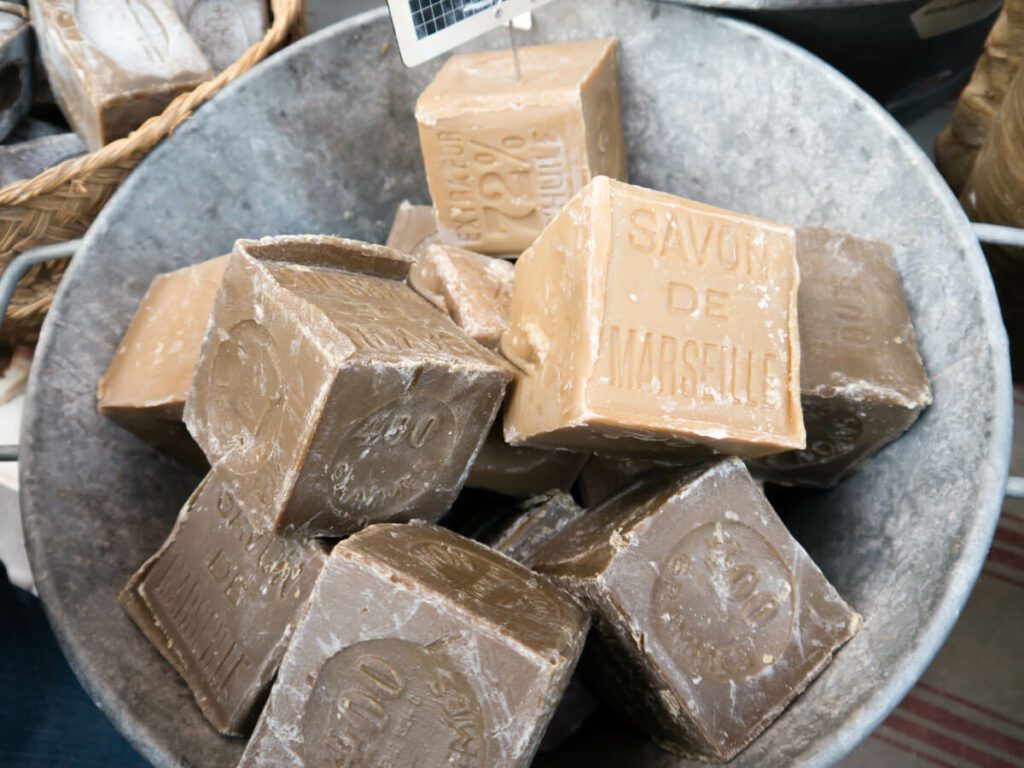
Who doesn’t love these unique and beautiful soap blocks? Piled high in a basin, or sitting solitary on a chipped saucer, these blocks offer more than just a chance to tidy up. Their history is as rich as their lather! Join me for a little tutorial on our famous Marseille Soap blocks; an Atelier 522 staple year round.

Savon de Marseille- The history of Marseille Soap
One of the oldest documented soaps in the world, the history of Savon de Marseille (Marseille Soap) dates all the way back to the 14th century. By 1593, the first factory in Marseille, France was opened by Georges Prunemoyr, due to high production needs. By 1660, seven factories had opened and production and nearly 20,000 tonnes of soap was produced each year.
In 1688 the “Edict of Colbert” was conceived by King Louis XIV, which introduced a set of regulations limiting the use of the name “Savon de Marseille”. According to the edict, only soaps made in the Marseille region, heated in cauldrons, made using only pure virgin olive oil, and no animal fats, could be called “Savon de Marseille”. Any soap maker who broke the rules risked banishment from Provence.
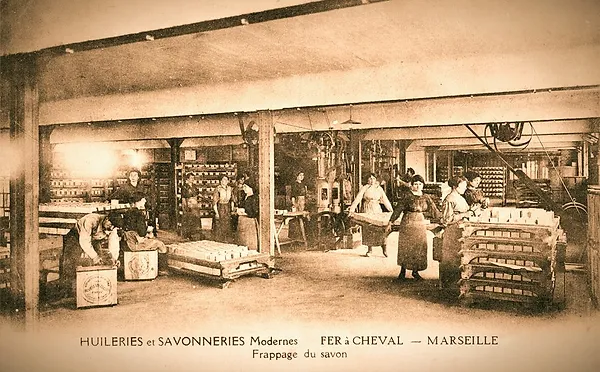
How is Marseille Soap made?
Traditionally, the soap is made by mixing olive oil, alkaline ash (made from the burning of the salt marsh plant Glasswort), and sea water from the Mediterranean Sea in a large cauldron. This mixture is heated for several days and stirred continuously. The mixture is poured into a mold to set, then cut into squares, stamped, and left to completely harden. The process can take up to a month from start to finish.
A few changes since the 14th century, but still the same soap
Over the years, the production of Marseille soap has seen a few changes. The law has loosened to allow for other vegetable oils to be used, and with modern technology the soap making process has been reduced-although authentic Marseille soap must still be made in Provence, in a cauldron, and be stamped with the “Savon de Marseille” logo to be considered authentic, according to the UPSM (Union des Professionels du Savon de Marseille) standards.
Your Marseille Soap guarantee:
Authentic 100% Natural and Vegetal
Cruelty-free: not tested on animals
Suitable for Vegans
Enriched with Olive Oil
Suitable for all skin types
Paraben-free and Silicon-free
No added scent*
A lover AND a fighter
The high oil content of these blocks will leave your skin feeling moisturized, but these blocks aren’t just for your body. Marseille soap is frequently used for domestic cleaning, including hand-washing of delicate garments and those made of silk and wool. Marseille soap is widely believed to be the most excellent soap worldwide. Naturally hypoallergenic, it is perfect for people with sensitive skin. They are famous for not only cleaning your floor (grate into a pail of hot water to wash any surface), but delicate enough for your baby’s bum!
Your Marseille Soap block
The old-world charm of the Marseille soap blocks are reason enough to want them. Each block has its own character…oversized and slightly askew with gorgeous olive-green colour that hints of the French countryside. The vintage styled carved lettering of the Marseille stamp adds character, and the clean unfragranced* scent is reminiscent of a time gone by. Whether you use them or not, they look beautiful on your bathroom or kitchen counter. What’s not to love?
*Also available in Lavender, scented with lavender essential oil and crushed lavender blooms.
